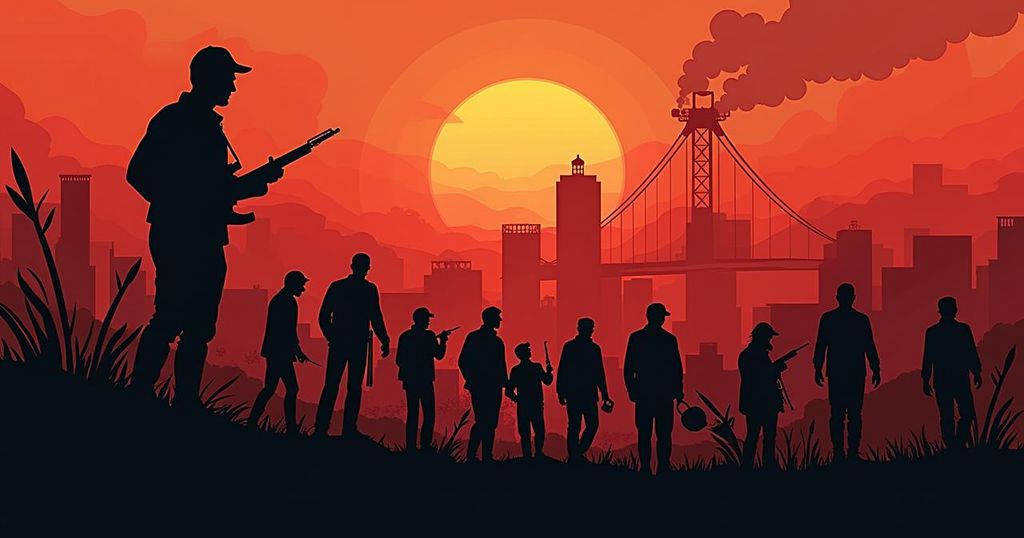Armenia’s Velvet Revolution: From Hope to Despair Amidst Military Defeat

Armenia’s Velvet Revolution of 2018, marked by hope for democratic reform, has been overshadowed by a devastating military defeat in Nagorno-Karabakh against Azerbaijan, resulting in over 2,300 casualties and significant political and economic challenges for Prime Minister Nikol Pashinyan’s government. The populace, once full of optimism, now faces deep disappointment and calls for leadership change amidst rising economic crises and societal unrest.
Armenia’s 2018 Velvet Revolution, which symbolized hope for democratic reform, is overshadowed by despair following a catastrophic military defeat in Nagorno-Karabakh against Azerbaijan. Over 2,300 Armenian lives were lost in the conflict, leading to significant challenges for the reformist government led by Prime Minister Nikol Pashinyan. In Yerevan, young soldiers, recently returned from the frontlines, mourn their fallen comrade while refugees from the conflict seek aid at embassies, highlighting the human toll of the war. The sense of optimism that accompanied the peaceful uprising, which ousted a corrupt regime, has been replaced by sorrow as the realities of loss, displacement, and economic insecurity confront the nation. Since the war, Armenia has suffered from a surge of COVID-19 cases, a looming economic crisis, and a considerable influx of refugees, dramatically altering the public’s priorities and diminishing support for Pashinyan. The once-celebrated leader now faces accusations of betrayal for signing a ceasefire agreement that many perceive as capitulation. This agreement was perceived as a shock to the Armenian populace, which had hoped for a different outcome. Political discontent is palpable as protests call for Pashinyan’s resignation, reflecting deep disappointment among supporters of the revolution. Figures such as Gagik Hakobyan, who actively participated in the 2018 demonstrations, express their disillusionment, criticizing Pashinyan’s remarks about the recently lost region, which many regard as a profound cultural and national loss. Despite the opposition’s spontaneous resurgence, their demonstrations remain limited and fragmented. The fear of returning to the old regime prevents some from participating in the protests. Additionally, the fear of violent reprisals following the ceasefire has tempered public dissent against the current administration. Young Armenians, who were once emboldened by the revolution, now grapple with ambivalent feelings toward the outcome of the war and the leadership they once supported. The coming months pose significant challenges for the Pashinyan administration, particularly as the economic repercussions of the conflict are anticipated to intensify. Many observers predict an increase in emigration as Armenians seek stability elsewhere amid a struggling economy and rising poverty. With the hope sparked by the Velvet Revolution now dimmed, the Armenian people face an uncertain future as they navigate the aftereffects of military defeat and its implications on their national identity and aspirations for reform.
The Velvet Revolution in Armenia was a peaceful movement that emerged in 2018, led by Nikol Pashinyan, aimed at displacing a long-standing autocratic regime. It symbolized a fresh start for Armenia, as citizens rallied for democratic reforms and a commitment to combat corruption. However, the country has faced severe backlash following the Nagorno-Karabakh conflict against Azerbaijan, resulting in significant casualties and refugee crises. This military defeat has deeply affected public sentiment, leading to a reevaluation of the hope that once surrounded Pashinyan’s leadership and the revolution.
The journey from the hopeful sentiments of the Velvet Revolution to the present state of despair underscores a significant existential crisis for Armenia. The aftermath of the Nagorno-Karabakh conflict reveals not only the tragic loss of life and territory but also a disillusionment with the leadership that once inspired hope for democratic progress. As the country grapples with the implications of war, economic downturn, and political instability, the need for a cohesive plan to restore faith in governance and reinvigorate the revolutionary spirit remains crucial.
Original Source: worldcrunch.com








